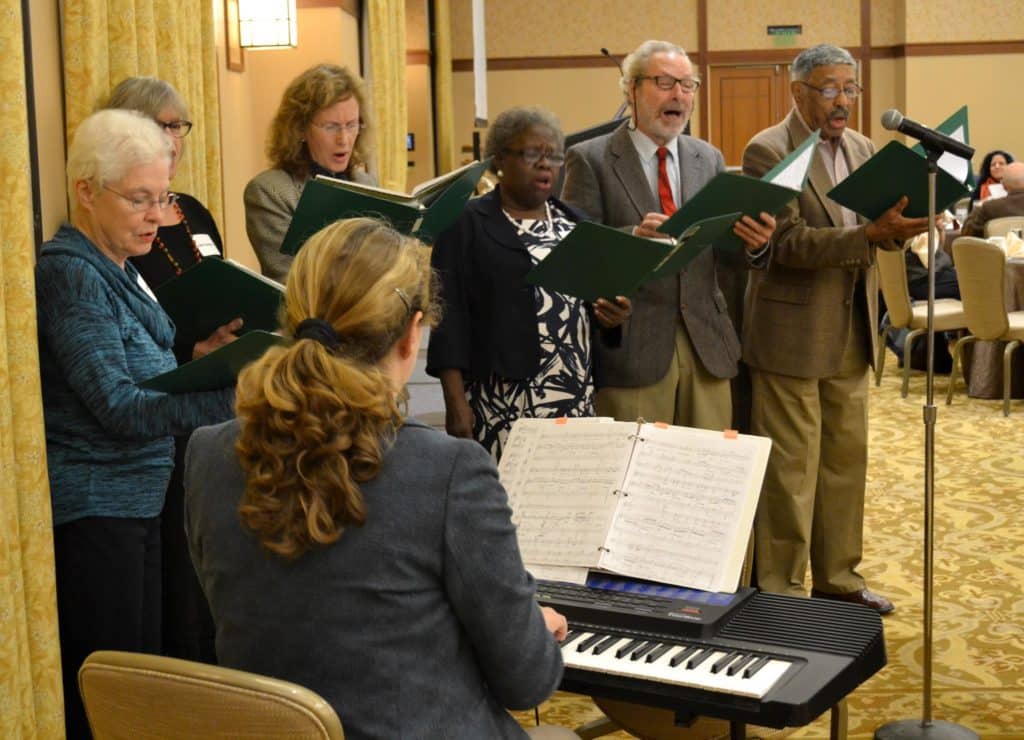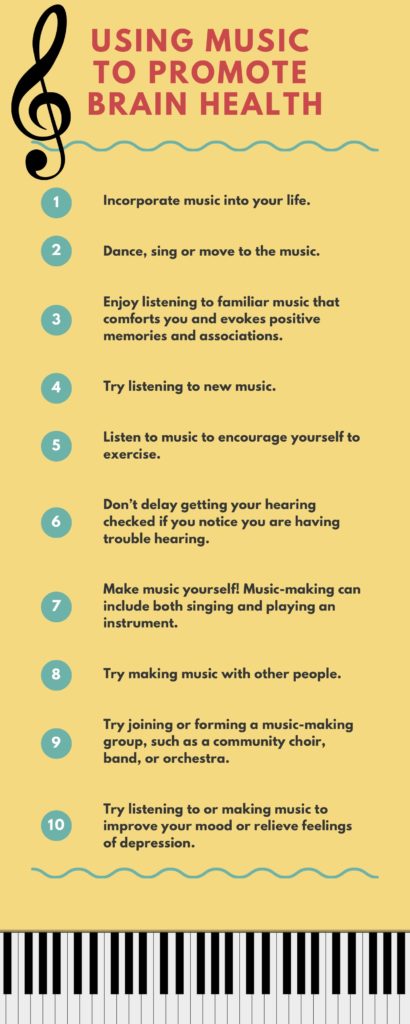
Dr. Darina Petrovsky leads the Penn Memory Center choir at the Research Partner Thank You Breakfast.
By Kamila Ahmad
When taking steps toward better brain health, consider the two-step.
Music and dance can stimulate brain activity, manage stress, and help those living with dementia, stroke, and Parkinson’s disease, according to a new report from the Global Council on Brain Health.
“Music is a universal language that everyone can enjoy with remarkable benefits,” said Sarah Lenz Lock, Executive Director of the GCBH. “This report suggests music can have a powerful role to play in healthy aging by enriching our brains’ activity, improving our moods, and fostering social connections.”
The group of experts explored the impact of music on the brain health of older adults with dementia and released a list of recommendations to support brain health and cognitive capacity with music. PMC Co-Director Jason Karlawish, MD, is a member of the GCBH Governance Committee.

The GCBH team of experts conducted observational studies and randomized controlled trials, as well as reviews of the literature published in peer-reviewed journals. The team concluded: “Music may reinforce the coordination of coupled networks, potentially strengthening an older adult’s working memory and the connection between hearing and doing.
“We cannot say that music increases cognitive abilities for those with dementia. Nevertheless, scholars generally agree that enhancing well-being reduces the risk of dementia — and music and dance can enhance a sense of well-being.”
Jonas Policy Scholar Darina Petrovsky PhD, MN has been studying the relationship between brain health and music engagement in older adults with MCI. Working with the Penn Memory Center, Dr. Petrovsky is currently researching whether listening to music at bedtime helps older adults with memory problems. Her team has so far been unable to find a connection between participants’ cognitive abilities and their musical engagement.
“This means two things: the scale that we used may not be very good, and musical ability and the ability to think about your engagement engages a different part of the brain,” she said.
The GCBH provided a series of recommendations and consensus statements intended to help people understand the potential that music holds for supporting and enriching brain health.
Recommendations for Individuals:
- Incorporate music into your life.
- Dance, sing or move to the music.
- Enjoy listening to familiar music that comforts you and evokes positive memories and associations.
- Try listening to new music.
- Listen to music to encourage yourself to exercise.
- Don’t delay getting your hearing checked if you notice you are having trouble hearing.
- Make music yourself! Music-making can include both singing and playing an instrument.
- Try making music with other people.
- Try joining or forming a music-making group, such as a community choir, band, or orchestra.
- Try listening to or making music to improve your mood or relieve feelings of depression.
Recommendations for Communities:
- Support or start a community-based music-making group such as a choir.
- Don’t think music-making is limited to formal, in-person organizations.